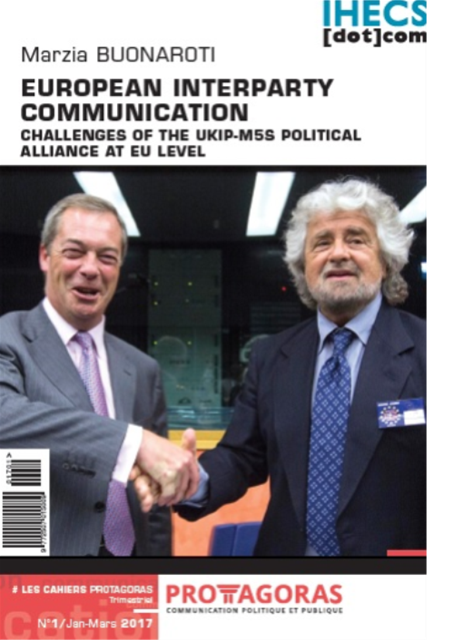
In a time of economic and financial crisis, many of the major governing parties have been held responsible for the economic setback and have been undergoing historic backlashes. This has resulted in the emergence of new Eurosceptic political actors. In such a context, the 2014 elections were a crucial event that saw the electoral exploits of many Eurosceptic parties all over Europe which, with clever communicative strategies, were able to convey and express the widespread discontent that many people felt, particularly towards the way the European crisis had been managed.
Two of the most voted Eurosceptic parties, the Italian Five Stars Movement and UKIP, formed a coalition in the European Parliament – an unfathomable coalition – given the clear divides in their political manifestos and in their vision of Europe. Through a thorough discourse analysis of the ideology, narrative and communicative approaches of the two parties applied before, during and after the European elections, this paper attempts to answer the question and investigate whether their alliance was based on a purely strategic objective where similar ideologies and political positions on Europe have very little space. This is a very current question that has continued, till today, to have implications and to shake the recently troubled EFDD group in the European Parliament
| Cookie | Duration | Description |
|---|---|---|
| cookielawinfo-checkbox-analytics | 11 months | This cookie is set by GDPR Cookie Consent plugin. The cookie is used to store the user consent for the cookies in the category "Analytics". |
| cookielawinfo-checkbox-functional | 11 months | The cookie is set by GDPR cookie consent to record the user consent for the cookies in the category "Functional". |
| cookielawinfo-checkbox-necessary | 11 months | This cookie is set by GDPR Cookie Consent plugin. The cookies is used to store the user consent for the cookies in the category "Necessary". |
| cookielawinfo-checkbox-others | 11 months | This cookie is set by GDPR Cookie Consent plugin. The cookie is used to store the user consent for the cookies in the category "Other. |
| cookielawinfo-checkbox-performance | 11 months | This cookie is set by GDPR Cookie Consent plugin. The cookie is used to store the user consent for the cookies in the category "Performance". |
| viewed_cookie_policy | 11 months | The cookie is set by the GDPR Cookie Consent plugin and is used to store whether or not user has consented to the use of cookies. It does not store any personal data. |